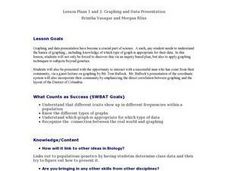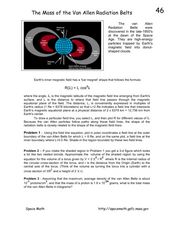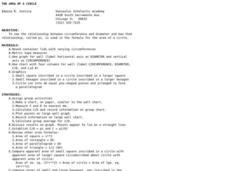Curated OER
The World's Simplest Cartesian Diver
Have your class learn about buoyancy using this simple lesson. First, they bring in condiment packets and see what happens when they place it in a glass of water. Then, they use one of the packets to illustrate the concept of a Cartesian...
Curated OER
Graphing And Data Presentation
Students engage in a study of science and mathematics with the practice of creating graphs. A guest speaker comes to the class to share statistics from the community and the students are shown how he uses the coordinate system in the...
Curated OER
Condiment Diver
Students create a Cartesian diver out of a bottle of water and a condiment packet (soy sauce, ketchup, etc.) They observe what happens to the packet as they squeeze the bottle and determine which types of condiment packets make the best...
Curated OER
Topo Triangulation
Students investigate how to read a topographical map and triangulate with just a map. They convert a compass measurement to a protractor measurement, reverse a bearing direction, and using a worksheet take a bearing of certain landmarks...
Curated OER
The Mass of the Van Allen Radiation Belts
For this van Allen Radiation Belts worksheet, students are given the formula for the field line of the Earth's inner magnetic field. Students use this equation to find the polar coordinates of a field line in the van Allen Belts. They...
Curated OER
THE AREA OF A CIRCLE
Students examine the relationship between circumference and diameter and how to use the formula to find the area of a circle. In this circle lesson students divide into groups and complete an activity.
American Museum of Natural History
Thinking in the Three Dimensions
Discover different dimensions with paper folding. Pupils first read about zero, one, two, and three dimensions, and then learn about the fourth dimension, time. They then use origami to create models of shapes in three dimensions and use...
Curated OER
Measure Up!
Students examine parallax and angular measurements. In this investigative lesson students calculate distances of objects and map their results.







